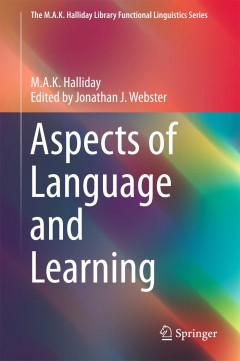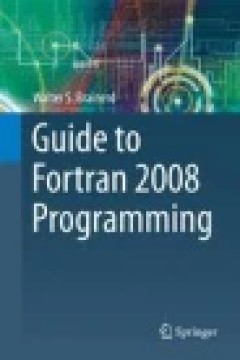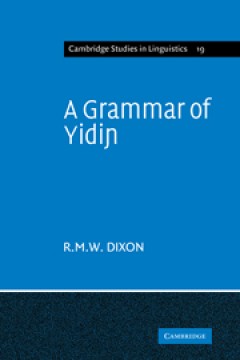Filter by

Aspects of Language and Learning
This book is based on a series of lectures, which begin with a look at the history of the language that we use in order to encode our knowledge, particularly our scientific knowledge, i.e., the history of scientific English. Prof. M.A.K. Halliday poses the question of how a growing child comes to master this kind of language and put it to his or her own use as a means of learning. In subsequent…
- Edition
- Ed. 1
- ISBN/ISSN
- 978-3-662-47821-9
- Collation
- VII, 149
- Series Title
- The M.A.K. Halliday Library Functional Linguistics Series
- Call Number
- 372.6 HOL a

A Handbook of the Cornish Language Chiefly in its Latest Stages, with Some A…
'Why should Cornishmen learn Cornish?' asked Henry Jenner (1848–1934) in the preface to this 1904 publication, dating from the beginnings of the Cornish revival. Jenner admits that 'the reason ... is sentimental and not in the least practical'. Born in Cornwall, but raised in south-east England, Jenner worked at the British Museum from 1870 to 1909 and was elected a fellow of the Society of A…
- Edition
- -
- ISBN/ISSN
- 9781139207119
- Collation
- -
- Series Title
- Cambridge Library Collection - Linguistics
- Call Number
- -

A Handbook of Phonetics Including a Popular Exposition of the Principles of …
As a phonetician and comparative philologist, Henry Sweet (1845–1912) produced work that was regarded as seminal, particularly in Germany, where he received greater academic recognition than in England. His textbooks on Old English have long been considered standard works. As well as theoretical and historical studies, he also became involved in more practical aspects of linguistics, devising…
- Edition
- -
- ISBN/ISSN
- 9781139854665
- Collation
- -
- Series Title
- Cambridge Library Collection - Linguistics
- Call Number
- -

A Handbook of Colloquial Japanese
Travelling in order to recover from a nervous breakdown, Basil Hall Chamberlain (1850–1935) arrived in Yokohama, Japan, in May 1873. He was immediately fascinated by traditional Japanese culture. At the same time, the national drive for modernisation in the wake of the Meiji Restoration had created a demand for teachers of English. Chamberlain was taken on as a tutor in the Imperial Japanese …
- Edition
- -
- ISBN/ISSN
- 9781316134405
- Collation
- -
- Series Title
- -
- Call Number
- -

Artificial General Intelligence: 8th International Conference, AGI 2015, AGI …
This book constitutes the refereed proceedings of the 8th International Conference on Artificial General Intelligence, AGI 2015, held in Berlin, Germany in July 2015. The 41 papers were carefully reviewed and selected from 72 submissions. The AGI conference series has played and continues to play, a significant role in this resurgence of research on artificial intelligence in the deeper, origin…
- Edition
- Ed. 1
- ISBN/ISSN
- 978-3-319-21365-1
- Collation
- XII, 416
- Series Title
- Lecture Notes in Computer Science
- Call Number
- 006.3 ART a

Guide to Fortran 2008 Programming
This textbook provides an accessible introduction to the most important features of Fortran 2008. Features: presents a complete discussion of all the basic features needed to write complete Fortran programs; makes extensive use of examples and case studies to illustrate the practical use of features of Fortran 08, and supplies simple problems for the reader; provides a detailed exploration of c…
- Edition
- -
- ISBN/ISSN
- 978-1-4471-6758-7
- Collation
- XI, 408
- Series Title
- -
- Call Number
- 004 BRA g

A Grammar of Semelai
Semelai is a previously undescribed and endangered Aslian (Mon-Khmer) language of the Malay Peninsula. This book - the first in-depth description of an Aslian language - provides a comprehensive reference grammar of Semelai. Semelai intertwines two types of morphological system: a concatenative system of prefixes, suffixes and a circumfix - acquired through extended contact with Malay - and a n…
- Edition
- -
- ISBN/ISSN
- 9780511550713
- Collation
- -
- Series Title
- Cambridge Grammatical Descriptions
- Call Number
- -

A Grammar of the Somali Language With Examples in Prose and Verse, and an Ac…
Somali is one of the Cushitic family of languages spoken in the horn of Africa and the official language of Somalia. This practical grammar, published in 1905, was prepared by J. W. C. Kirk, who first learnt to speak the language during his service with Somali troops during the British Empire's failed attempt in 1902–1904 to wrest control of the region from the Dervish state under Muhammad Ab…
- Edition
- -
- ISBN/ISSN
- 9780511708671
- Collation
- -
- Series Title
- Cambridge Library Collection - Linguistics
- Call Number
- -

A Grammar of Yidin
Professor Dixon's book The Dyirbal Language of North Queensland (CUP 1972) is acknowledge to be a classic study. His study of Yidin is directly comparable in importance. Yidin, which is also a dying language, is Dyirbal's northerly neighbour. Yet the two languages have striking and fundamental differences in each area of grammar (while still both belonging to the Australian language family). In…
- Edition
- -
- ISBN/ISSN
- 9781139085045
- Collation
- -
- Series Title
- Cambridge Studies in Linguistics (19)
- Call Number
- -

A Grammar of the Mahratta Language To Which Are Added Dialogues on Familiar …
Marathi, an official language of Maharashtra and Goa, is among the twenty most widely spoken languages in the world. The southernmost Indo-Aryan language, it is also spoken in Gujarat, Madhya Pradesh, Karnataka, and Daman and Diu, and is believed to be over 1,300 years old, with its origins in Sanskrit. First published in 1805, this grammar of Marathi (then known as Mahratta) was compiled by th…
- Edition
- -
- ISBN/ISSN
- 9781139519847
- Collation
- -
- Series Title
- Cambridge Library Collection - Perspectives from the Royal Asiatic Society
- Call Number
- -
 Computer Science, Information & General Works
Computer Science, Information & General Works  Philosophy & Psychology
Philosophy & Psychology  Religion
Religion  Social Sciences
Social Sciences  Language
Language  Pure Science
Pure Science  Applied Sciences
Applied Sciences  Art & Recreation
Art & Recreation  Literature
Literature  History & Geography
History & Geography